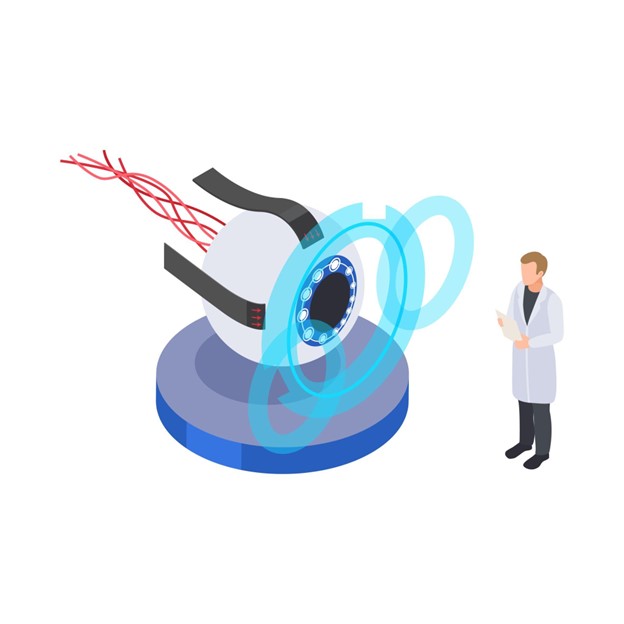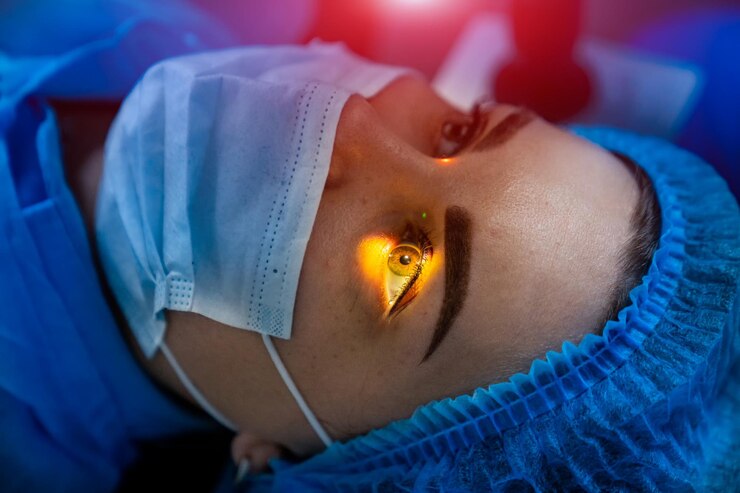Last updated on July 15th, 2025 at 05:32 pm

Laser treatment for eyes also known as laser vision correction, is a medical procedure designed to improve a person’s vision by reshaping the cornea, the clear front surface of the eye. This reshaping is done using a highly focused laser beam, which corrects common vision problems such as nearsightedness (myopia), farsightedness (hyperopia), and astigmatism.
There are two primary types of laser eye treatment: LASIK (Laser-Assisted In Situ Keratomileusis) and PRK (Photorefractive Keratectomy). Both procedures achieve the same goal but differ in their approach.
Laser Treatment For Eyes
The best treatments for Laser Eye Surgery are as follows:
1. LASIK (Laser-Assisted In Situ Keratomileusis):
LASIK is the most common and well-known laser eye treatment. It involves creating a thin flap on the cornea’s surface, lifting the flap, and using a laser to reshape the underlying corneal tissue. The flap is then repositioned, serving as a natural bandage, and typically heals without the need for stitches.
2. PRK (Photorefractive Keratectomy):
PRK is an alternative to LASIK and is suitable for individuals with thinner corneas or specific eye conditions. Instead of creating a corneal flap, PRK removes the corneal epithelium (outer layer) entirely before reshaping the cornea with a laser. The epithelium naturally regenerates over time.

Benefits of Laser Eye Treatment
The primary advantages of Laser Eye Treatment are mentioned below:
- Improved Vision: The most obvious benefit of laser eye treatment is significantly improved vision. Many patients experience 20/20 vision or better after the procedure, reducing or eliminating the need for glasses or contact lenses.
- Quick Recovery: Most people resume normal activities within 1–2 days after LASIK and about a week after PRK. After surgery, doctors often recommend eye drops to alleviate dryness and promote healing. Andre I Kul Eye Drops 10 ml may be prescribed to support recovery. Use as directed and avoid touching your eyes.
- Long-Lasting Results: The effects of laser eye treatment are typically permanent, providing a lasting solution to vision problems.
- Safety: Laser eye treatment is considered safe and highly effective when performed by experienced and qualified ophthalmologists.
- Convenience: Freedom from glasses or contact lenses can enhance one’s quality of life, making activities like sports and travel more convenient.
> Consult a doctor and Order Medicine Online
Laser Treatment for Eyes – Considerations and Precautions
While laser eye treatment offers numerous benefits, it’s essential to consider some important factors:
- Eligibility: Not everyone is a suitable candidate for laser eye treatment. Factors such as age, corneal thickness, and eye health play a role in determining eligibility.
- Potential Risks: As with any medical procedure, there are risks associated with laser eye treatment, including dry eyes, night vision issues, and glare sensitivity. Consultation with an eye specialist is crucial to understanding these risks.
- Cost: Laser eye treatment is an investment in your vision. It’s crucial to take into account the expense and determine if it aligns with your financial plan.
- Choosing a Surgeon: Selecting an experienced and reputable ophthalmologist or eye surgeon is critical to the success of the procedure. Research potential providers thoroughly and ask for recommendations.
Laser eye surgery’s benefits include improved vision, quick recovery, and the potential for permanent results, making it a convenient alternative to traditional eyewear. However, potential candidates should carefully consider factors like eligibility, cost, and choosing a skilled surgeon. With the right precautions and professional guidance, laser eye surgery can provide a clearer, more liberated perspective on the world.
Conclusion:
Laser eye treatment has transformed the lives of countless individuals, offering a path to clearer vision and greater freedom from glasses and contact lenses. While it’s not a one-size-fits-all solution and requires careful consideration, the benefits of improved vision and enhanced quality of life are undeniable.
If you’re tired of relying on corrective eyewear, consult with an eye specialist to determine whether laser eye treatment is the right choice for you. The world may soon become a much clearer and more vibrant place.
Tip for long-term eye health: Beyond corrective procedures, maintaining healthy vision also depends on balanced nutrition. Supplements like Haem Up Syrup 200 ml, rich in iron and essential vitamins, can help support eye health and reduce the risk of nutritional deficiencies that may affect vision over time.
Read: What are Generic Medicines?
Difference Between Patent And Generic Medicine
Patent medicine and generic medicine differ primarily in terms of brand exclusivity and cost. A patent medicine is the original, brand-name drug developed by a pharmaceutical company, protected by a patent for a certain period, usually around 20 years.
During this time, only the patent holder can produce and sell the medication, often at a higher price. In contrast, generic medicines are copies of the patent-expired drug, typically more affordable, with the same active ingredients, quality, and effectiveness, though they may have different names and packaging.
FAQs on Laser Treatment for Eyes
Q1. What is laser treatment for the eyes?
Laser treatment for the eyes is a medical procedure that uses a focused laser beam to reshape the cornea, which is the clear front surface of the eye. This reshaping corrects common vision problems like nearsightedness, farsightedness, and astigmatism, reducing or eliminating the need for glasses or contact lenses.
Q2. What does laser treatment for eyes cost in India?
The cost of laser treatment for eyes in India can vary widely depending on the type of procedure, location, and the specific clinic or hospital. On average, LASIK surgery can cost anywhere from INR 20,000 to INR 50,000 per eye, while PRK may range from INR 15,000 to INR 35,000 per eye. It’s essential to consult with eye care centres for accurate pricing details and potential additional charges for pre-operative and post-operative care.
Q3. What is the laser treatment for eyes age limit?
The age limit for laser treatment for eyes typically ranges from 18 to 45 years old. However, eligibility depends on individual factors such as eye health, stability of vision prescription, and overall health. Consultation with an eye specialist is essential to determine if the procedure is suitable for a specific person.
Q4. Is laser eye treatment painful?
No, laser eye treatment is typically not painful. Patients may experience minor discomfort or a burning sensation for a short time during the procedure, but it is usually well-tolerated with the use of numbing eye drops.
Related Links: